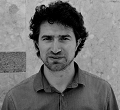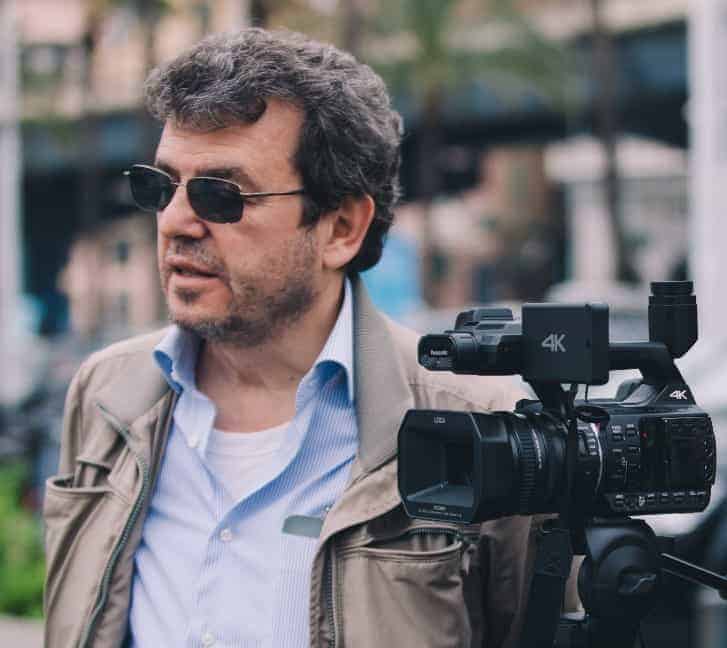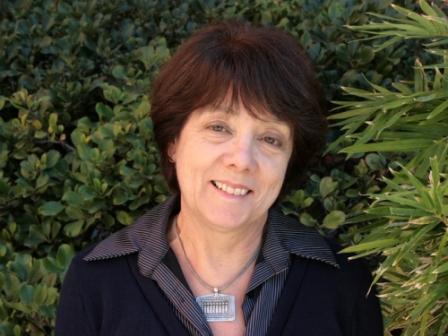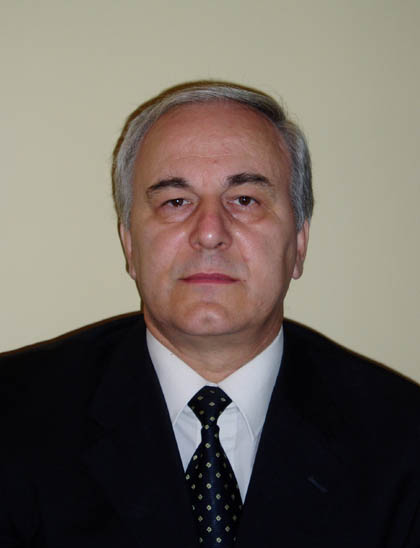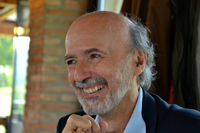Studying at the University of Verona
Here you can find information on the organisational aspects of the Programme, lecture timetables, learning activities and useful contact details for your time at the University, from enrolment to graduation.
Academic calendar
The academic calendar shows the deadlines and scheduled events that are relevant to students, teaching and technical-administrative staff of the University. Public holidays and University closures are also indicated. The academic year normally begins on 1 October each year and ends on 30 September of the following year.
Course calendar
The Academic Calendar sets out the degree programme lecture and exam timetables, as well as the relevant university closure dates..
| Period | From | To |
|---|---|---|
| semestrino IA | Oct 1, 2012 | Nov 21, 2012 |
| Semestrino IB | Nov 26, 2012 | Jan 23, 2013 |
| Semestrino IIA | Feb 25, 2013 | Apr 20, 2013 |
| Semestrino IIB | Apr 22, 2013 | Jun 7, 2013 |
| Session | From | To |
|---|---|---|
| Sessione invernale | Jan 24, 2013 | Feb 23, 2013 |
| Sessione estiva | Jun 10, 2013 | Jul 31, 2013 |
| Sessione autunnale | Sep 2, 2013 | Sep 28, 2013 |
| Session | From | To |
|---|---|---|
| Sessione estiva - I appello | Jun 20, 2013 | Jun 20, 2013 |
| Sessione estiva - II appello | Jul 11, 2013 | Jul 11, 2013 |
| Sessione autunnale - I appello | Oct 17, 2013 | Oct 17, 2013 |
| Sessione autunnale - II appello | Nov 21, 2013 | Nov 21, 2013 |
| Sessione invernale | Mar 20, 2014 | Mar 20, 2014 |
| Period | From | To |
|---|---|---|
| Festa di Ognissanti | Nov 1, 2012 | Nov 1, 2012 |
| Festa dell'Immacolata Concezione | Dec 8, 2012 | Dec 8, 2012 |
| Vacanze di Natale | Dec 21, 2012 | Jan 6, 2013 |
| Vacanze di Pasqua | Mar 29, 2013 | Apr 2, 2013 |
| Festa della Liberazione | Apr 25, 2013 | Apr 25, 2013 |
| Festa dei Lavoratori | May 1, 2013 | May 1, 2013 |
| Festa del Santo Patrono di Verona - San Zeno | May 21, 2013 | May 21, 2013 |
| Festa della Repubblica | Jun 2, 2013 | Jun 2, 2013 |
| Vacanze estive | Aug 9, 2013 | Aug 16, 2013 |
Exam calendar
Exam dates and rounds are managed by the relevant Culture and Civilisation Teaching and Student Services Unit.
To view all the exam sessions available, please use the Exam dashboard on ESSE3.
If you forgot your login details or have problems logging in, please contact the relevant IT HelpDesk, or check the login details recovery web page.
Should you have any doubts or questions, please check the Enrollment FAQs
Academic staff
Alizzi Antonio
 antonio.alizzi@univr.it
antonio.alizzi@univr.it
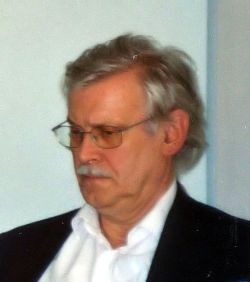
Busch Bernard Walter
 daniela.carpi@univr.it
daniela.carpi@univr.it
Cattapan Nico
 nico.cattapan@univr.it
nico.cattapan@univr.it
Cioffi Antonio
 cinzia.delotto@univr.it
cinzia.delotto@univr.it
Leso Erasmo
 erasmo.leso@univr.it
erasmo.leso@univr.it
 +39 045802 8559
+39 045802 8559

Ligas Pierluigi
 pierluigi.ligas@univr.it
pierluigi.ligas@univr.it
 +39 045 802 8408
+39 045 802 8408
 silvia.monti@univr.it
silvia.monti@univr.it
 carmen.navarro@univr.it
carmen.navarro@univr.it
Palma Paola
 palma.paola@gmail.com
palma.paola@gmail.com
 lor.reg@alice.it
lor.reg@alice.it
 domenico.secondulfo@univr.it - domenico.secondulfo3@gmail.com
domenico.secondulfo@univr.it - domenico.secondulfo3@gmail.com
Study Plan
The Study Plan includes all modules, teaching and learning activities that each student will need to undertake during their time at the University.
Please select your Study Plan based on your enrollment year.
1° Year
| Modules | Credits | TAF | SSD |
|---|
Un insegnamento a scelta tra i seguentiUn insegnamento a scelta tra i seguentiUno o due insegnamenti a scelta tra i seguentiTre insegnamenti a scelta tra i seguenti2° Year activated in the A.Y. 2013/2014
| Modules | Credits | TAF | SSD |
|---|
Un insegnamento a scelta tra i seguentiUn insegnamento a scelta tra i seguenti| Modules | Credits | TAF | SSD |
|---|
Un insegnamento a scelta tra i seguentiUn insegnamento a scelta tra i seguentiUno o due insegnamenti a scelta tra i seguentiTre insegnamenti a scelta tra i seguenti| Modules | Credits | TAF | SSD |
|---|
Un insegnamento a scelta tra i seguentiUn insegnamento a scelta tra i seguentiLegend | Type of training activity (TTA)
TAF (Type of Educational Activity) All courses and activities are classified into different types of educational activities, indicated by a letter.
Advanced English for Journalism (m) (2012/2013)
Teaching code
4S02366
Teacher
Coordinator
Credits
6
Language
English
Scientific Disciplinary Sector (SSD)
L-LIN/12 - LANGUAGE AND TRANSLATION - ENGLISH
Period
semestrino IA dal Oct 1, 2012 al Nov 21, 2012.
Learning outcomes
The course aims at developing the ability to analyze and produce a journalistic piece in its different forms, be it a written text (print / on-line version) or a broadcast piece. The students will be shown how to identify and reproduce the stylistic and textual features of journalistic texts, bearing in mind the cultural-ideological background against which a report, a feature or a commentary is set.
During the course, journalistic texts in languages other than English will be discussed as well.
Program
Pre-requisites
Entry level required: C1 (advanced), according to the European framework.
Programme
History of journalism: the basics
News reporting
Features
Commentaries and editorials
Subediting
Broadcast journalism
Court reporting
Interviewing
Freelancing
Media law
Professional ethics
Ideology in journalism
Teaching methodology
Lectures, tutorials, seminars and practice sessions.
Reference text
Facchinetti, Roberta, Nicholas Brownlees, Birte Bös, Udo Fries (2012) News as Changing Texts. Corpora, Methodologies and Analysis. Newcastle-upon-Tyne: Cambridge Scholars Publishing.
Further texts will be handed out during the lessons.
Examination Methods
Exam structure: written.
NB: Students intending to take this exam are strongly advised to attend the lessons.
INFORMATION FOR NON-ATTENDERS
Students who do not attend the course have to study in detail the following references:
• Banks, David and Mark Hanna 2009. McNae’ Essential Law for Journalists, 20th ed. Oxford: Oxford University Press.
• Bell, Martin 2010. “The death of news”. British Journalism Review 21/1. 73-74
• Bown, Lesley and Ann Gawthorpe (2008) Teach Yourself. Writing for Magazines. London: Hachette Livre UK Company.
• Boyd, Andrew (2001) 5th ed. Broadcast Journalism: Techniques of Radio and Television News, Amsterdam: Elsevier.
• Brownlees, Nicholas (1999) Corantos and Newsbooks: Language and Discourse in the First English Newspapers (1620-1641). Edizioni ETS, Pisa.
• Chouliaraki, Lilie. 2010. “Self-mediation: New media and citizenship”. Critical Discourse Studies 7/4. 227-232.
• Clayman Steven and John Heritage (2002) The News Interview. Cambridge: Cambridge University Press.
• Conboy, Martin. 2010. The Language of Newspapers: Socio-Historical Perspectives. London: Continuum.
• Cotter, Colleen 2011. “Women's place at the Fourth Estate: Constraints on voice, text, and topic”, Journal of Pragmatics, Vol. 43/10, pp. 2519-2533.
• Craig, David. 2011. Excellence in Online Journalism. Exploring Current Practices in an Evolving Environment. London: SAGE.
• Deuze, Mark 2008. “Understanding journalism as newswork: How it changes, and how it remains the same”. Westminster Papers in Communication and Culture, University of Westminster, London, Vol. 5(2): 4-23.
• Devereux, Eoin. 2007. Understanding the Media. London: SAGE.
• Facchinetti, Roberta, Nicholas Brownlees, Birte Boes, Udo Fries. 2012. News as Changing Texts. Corpora, Methodologies and Analysis. Newcastle-upon-Tyne: Cambridge Scholars Publishing.
•Fries, Udo, Viviane Müller and Peter Schneider (eds.) (1997) From Ælfric to the New York Times. Studies in English Corpus Linguistics. Amsterdam: Rodopi.
• Hennessy, Brendan 2006. 4th ed. Writing Feature Articles. A Practical Guide to Methods and Markets. Oxford: Focal Press.
• Hoey, Michael 2001. Textual Interaction. An Introduction to Written Discourse Analysis. London, Routledge.
• Huls Erica and Jasper Varwijk 2011. “Political bias in TV interviews”. Discourse and Society 22(1): 48-65.
• Jucker, Andreas 1992. Social Stylistics, Syntactic Variation in British Newspapers. Berlin: Mouton de Gruyter.
• Jucker, Andreas H. (1986) News Interviews: A Pragmalinguistic Analysis. Amsterdam: Benjamins.
• Lee Wright, Peter 2010. New Media, Old News. London: SAGE.
• Quinn, Stephen 2001. Digital Sub-editing and Design, Oxford: Focal Press.
• Reese, Stephen D., Lou Rutigliano, Kideuk Hyun and Jaekwan Jeong. 2007. “Mapping the blogosphere: Professional and citizen-based media in the global news arena”. Journalism 8/3. 235-261.
• Ungerer, Friedrich 2002. “When news stories are no longer stories: The emergence of the top-down structure in news reports in English newspapers”. In Andreas Fischer, Gunnel Tottie and Hans Martin Lehmann (eds.) Text Types and Corpora. Studies in Honour of Udo Fries, Gunter Narr: Tübingen, pp. 91-104.
• Van Dijk, Teun A. 1988. News as Discourse. Lawrence Erlbaum Associates, London.
• Van Hout, Tom and Geert Jacobs. 2010. News production theory and practice: Fieldwork notes on power, interaction and agency. Pragmatics 18/1. 59-85.
• Williams, Kevin. 2010. Read All About It! A History of the British Newspaper. London, N.Y.: Routledge.
Moreover, in order to give the exam, non-attenders have to send the teacher 3 news reports, 3 features, 3 commentaries and 3 TV packages one week before the exam. The assessment of such texts will be integral part of the exam.
The exam for non-attenders will be structured as follows:
1) Written questions on the above-mentioned bibliographic references;
2) Writing of a journalistic piece;
3) Analysis of a journalistic piece and identification of its textual type.
Type D and Type F activities
Modules not yet included
Career prospects
Module/Programme news
News for students
There you will find information, resources and services useful during your time at the University (Student’s exam record, your study plan on ESSE3, Distance Learning courses, university email account, office forms, administrative procedures, etc.). You can log into MyUnivr with your GIA login details: only in this way will you be able to receive notification of all the notices from your teachers and your secretariat via email and soon also via the Univr app.
Graduation
List of theses and work experience proposals
| theses proposals | Research area |
|---|---|
| Laureandi Editoria e Giornalismo: vademecum | Various topics |
| TESI SU COMUNICAZIONE DELL’AGROALIMENTARE | Various topics |
| Stage | Research area |
|---|---|
| Proposte stages - Centro di ricerca Skenè | Various topics |
| TIROCINIO IN GIORNALISMO E SOCIAL MEDIA | Various topics |



